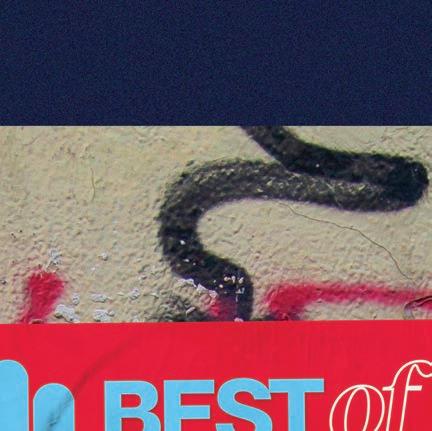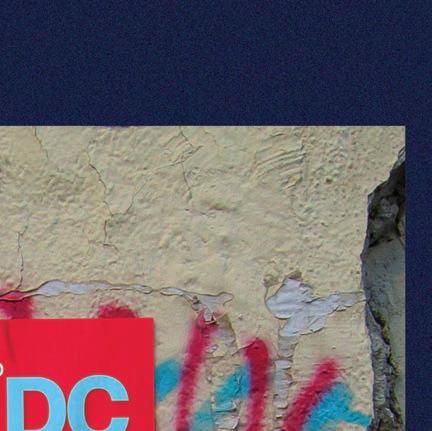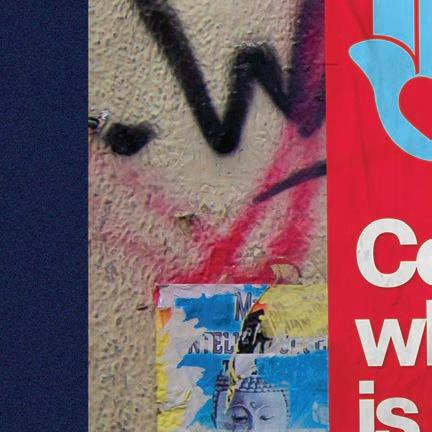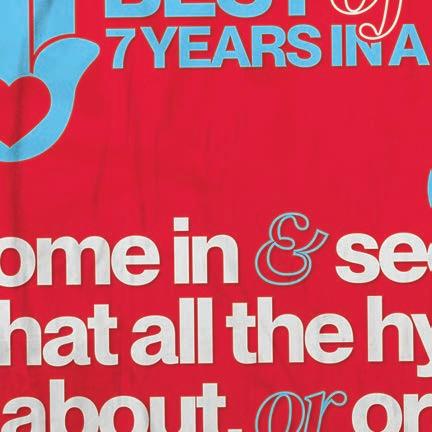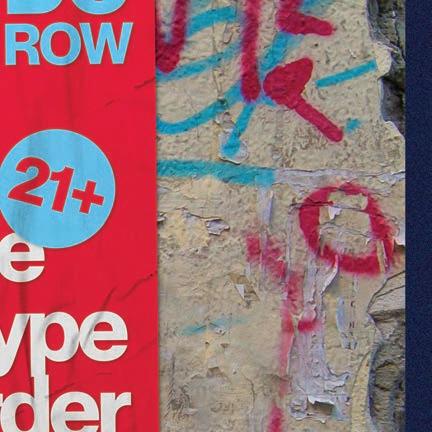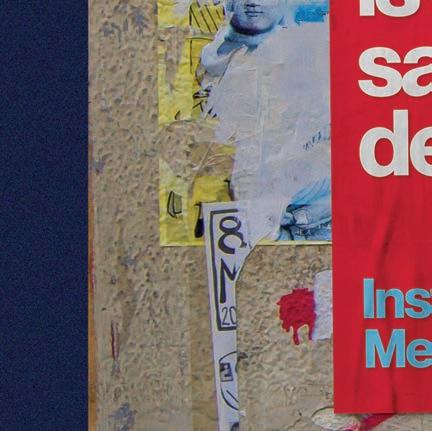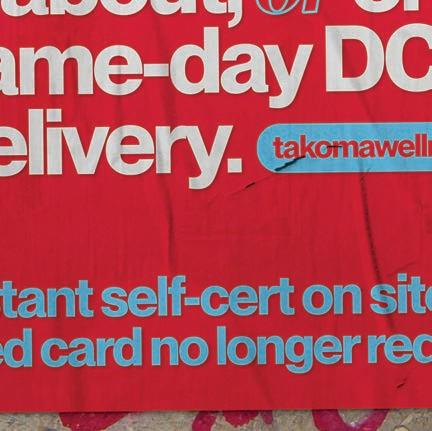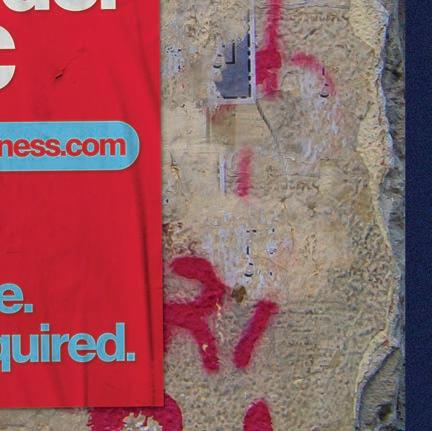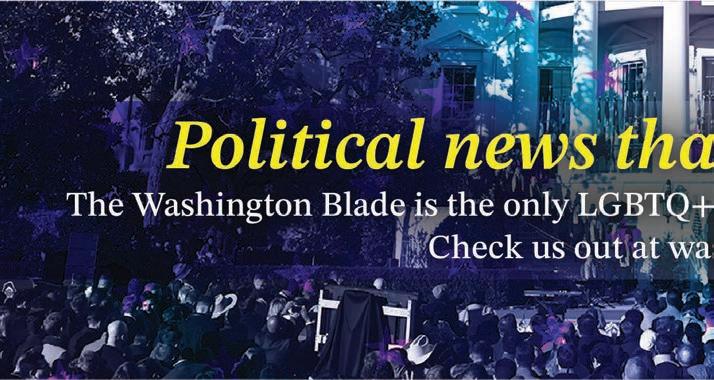
6 minute read
Say NO to D.C. ranked choice voting, open primaries
Neither proposal would benefit local residents
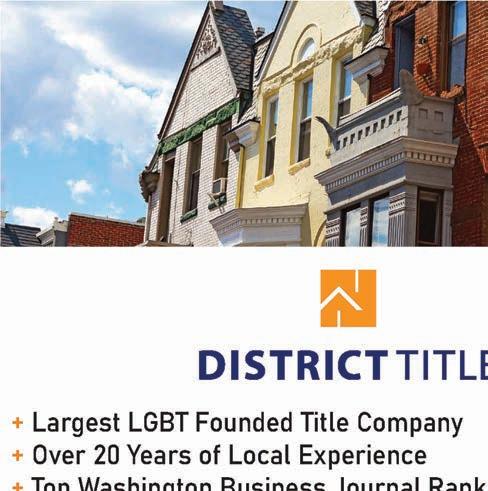
There is a proposed ballot initiative in D.C. that would do two things: bring ranked-choice voting (RCV) to D.C., and allow for open primaries. Open primaries would mean any registered voter, who didn’t designate a party when they registered, could now choose to cast a ballot in any party primary. I have a simple recommendation for voters if this initiative does get on the ballot, VOTE NO!
According to the Washington Post the fi ght for this initiative is being led by Lisa D. T. Rice, a Ward 7 ANC commissioner, who claims independent voters are currently disenfranchised. Well, Lisa and others, you have disenfranchised yourselves. It is your choice to register as independent, which we all know means nothing. We also know from most polling that ‘independents’ lean either Republican or Democratic. They have no independent initiatives.
Generally, initiatives like this are brought to you by two groups. One likes to think they are “progressive;” another is either too lazy, or think they are too good, to get involved in party politics. I have spoken to several people who support this initiative and gather they seem to think it’s beneath them to get involved in party politics, and would just rather let others fi ght over these things, and then come in at the end and tell the party who should represent them. Others, some Republicans, have told me they think open primaries would be a great way for them to have a voice in choosing the Democratic candidate, or maybe the Green Party candidate. They recognize in D.C., which is overwhelmingly Democratic, the winner of the Democratic nomination nearly always wins the general election. My response to them is if they want to choose the Democratic candidate, just register as a Democrat. You can still vote Republican in a general election if you like. D.C.’s Home Rule charter ensures two members of the Council be non-Democrats. I agree, that often means a Democrat reregistering as independent, since it is the rare Republican, running on the Republican Party platform, who could win in D.C.
I grew up with the understanding that you choose a political party when you register to vote, based on the general philosophy of that party. Then you work within it to bring to the fore issues you care about. You also work within the party to decide who will be representing it in the general election. The reason you have party primaries is not everyone agrees on a candidate. I support the idea that we should not have candidates representing us who can’t get 50% of the primary vote. So, hold a run-off election between the top two candidates if no one reaches 50%. These run-offs can be held two weeks after the initial primary, giving interested voters the chance to look at both the top candidates, choosing the one they like best. There is a debate over the cost of this. But that becomes irrelevant in D.C. where the Council agreed to spend millions on public fi nancing of candidates, making it so easy to access that money, we end up with seven, eight, and nine or more candidates for each offi ce, most of them having no chance in hell of winning.
Some people have claimed RCV brings out more voters. Fair Vote , the national group promoting RCV, agrees there is no defi nitive research to prove that. With RCV people mark their ballots ranking each candidate from one to however many are on the ballot. Some will do that; others will bullet vote. Some will do it knowing what the candidates stand for, however most won’t have any idea what most of them stand for.
Rice is quoted in the Washington Post saying “With ranked choice voting we would be rewarded with politicians who must work hard for our support.” I don’t know any offi ce holder in D.C. who hasn’t worked hard for votes. Actually, you could fi nd just the opposite; candidates would be much more wishy-washy on issues in an effort to appeal to more people. In essence telling voters even less about what they really want to do so as not to alienate them. With RCV you have the real chance for games as we saw in New York’s ranked choice mayoral primary, when Andrew Yang and Kathryn Garcia endorsed each other, suggesting each of their voters give the other their second vote, even though they had totally different platforms.
The bottom line is neither RCV nor open primaries would benefi t the people of D.C. in any way. So just say NO! to both.


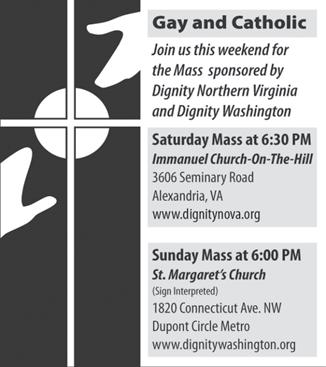
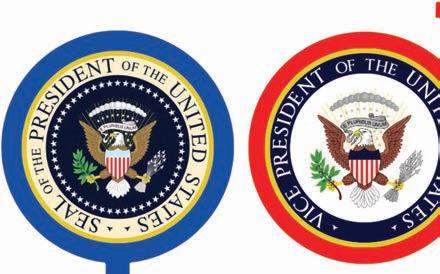


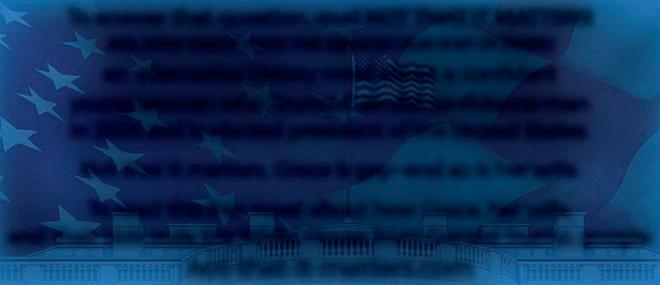
Michigan resident this month defied prohibition

When Adm. Rachel Levine, assistant secretary of health, declared 2023 the summer of Pride, she rang a clarion bell but also delivered a challenge in our hate-filled era because, as per the ACLU, LGBTQ communities have recently seen close to 500 anti-LGBTQ pieces of legislation proposed across the nation.
Yet LGBTQ communities persist in celebration, resistance, and resilience. More than 30 cities from Silicon Valley, Calif., to Atlanta are scheduled to commemorate Pride from July to November. Tragically, many communities face homophobic legislation that now bans flying the rainbow flag.
I was dismayed to learn this trend of hatred had reached my home state of Michigan — because it’s a reflection of a broader effort to disappear our flag and disenfranchise our communities.
I am a proud native son of Michigan, a graduate of the Lansing public school system, an alumnus of Michigan State University. My state taught me to respect neighbors from all walks of life. It’s a lesson I keep close to my heart I was profoundly disappointed to learn of the recent ban on flying the rainbow flag in Hamtramck. Since the shocking June 13 vote banning flying the flag, compassionate citizens have protested this legislation. They held a large rally on June 24. Many businesses and citizens proudly flew the rainbow flag in defiance. And, in an act of civil disobedience, a brave soul raised the flag on July 9.


The injustice in Hamtramck reflects a larger trend of rising bigotry.
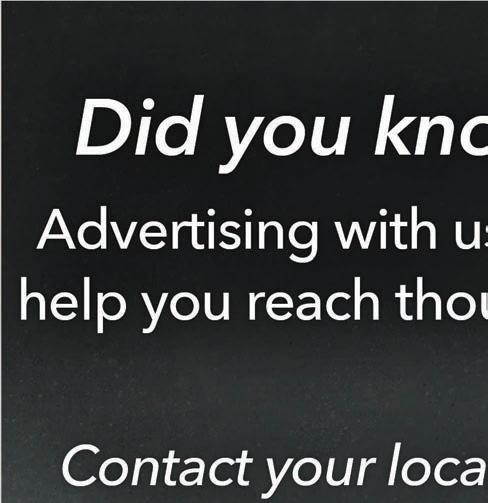
Make no mistake; these bans and attacks on the rainbow flag are not in Michigan alone. Across the country we are seeing a wave of anti-LGBTQ legislation: They include bans on LGBTQ-inclusive school curricula, on books and on lifesaving trans healthcare needs. Suppressing speech and removing our cherished symbols is part of a larger mission: Relegating the LGBTQ community to permanent second-class citizenship.
As bigotry and violence increase, we must unite and push back against the bullies.
I’ve committed my life to social justice. That is why I founded the Gilbert Baker Foundation. Our group honors the legacy of artist and activist Gilbert Baker, who created the rainbow flag in 1978. Through art and education projects, we confront the haters.
The rainbow flag offers LGBTQ+ people a message of hope and sanctuary. Small wonder right-wing extremists want to destroy it. In the past two years, they’ve had the rainbow flag banned from flying in more than 40 American towns.
In response to this alarming trend, the Gilbert Baker Foundation launched a counter-offensive: Save The Rainbow Flag. Working with the ACLU, we‘ve created a toolkit to help you confront and stop bigotry in your hometown.
Hamtramck, like so many other towns, uses faulty thinking in banning the rainbow flag. Their residents and all-Muslim town council said that the Pride flag — and homosexuality — clash with their religious beliefs. Hamtramck’s new policy also bans flags with racist and political views. To identify the rainbow flag this way is a smokescreen for bigotry. The rainbow flag is not a political flag. It is a flag for sexual and gender minorities from all parties, from all races.
To deny public display of the rainbow flag is to place a target on our back. Studies show that when communities remove our flag from public property, there is a concurrent rise in anti-LGBTQ hate crimes. This past January, federal legislation to ban the rainbow flag was submitted to the U.S. Congress — with 30 Republican sponsors.
Public officials are elected to decide between right and wrong. Instead of shirking from these civic duties, leaders of towns like Hamtramck should stand up and state publicly that there is a difference between a bad symbol like the Confederate flag, which celebrates racism, and the rainbow flag, which offers a message of hope and acceptance.
This is my plea to elected officials everywhere: Embrace our founding values of inclusion and justice. By removing the rainbow flag, you send a message of support to our persecutors. Upholding bigotry will be your legacy.
Fighting back against bullies is an American value. And it works. Citizens have already reversed rainbow flag bans in cities in Oregon and New York. Every state needs an energetic community response to end this wave of hate. Let’s prove that America supports all of its people.

